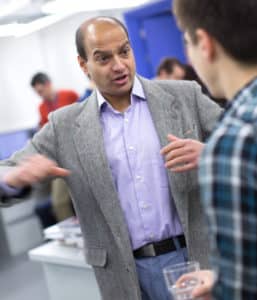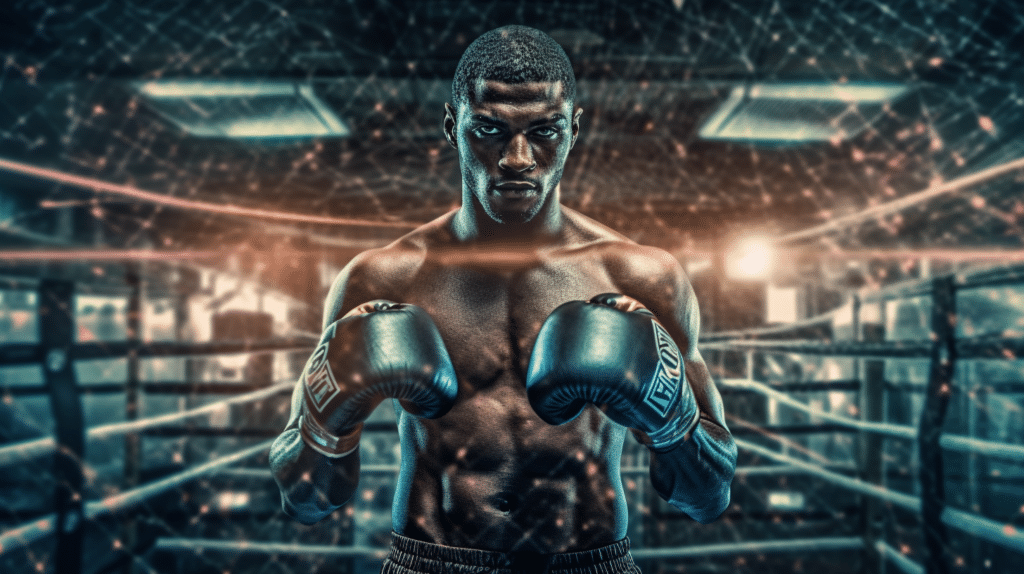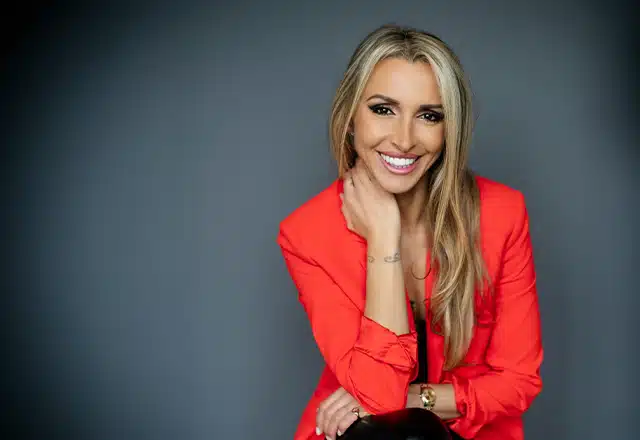Boxing & AI Convergence
Ravi Vaidyanathan is not the kind of professor that you would associate with pugilism, but he can handle himself in the ring, as well as in the laboratory.

“What is kind of funny is that the overtone is I have to be a little thuggish to box!” he chuckles at the start of his interview.
Vaidyanathan, is a Professor in Biomechatronics in the Department of Mechanical Engineering at Imperial College London and one of the country’s leading voices on AI. He is also a welterweight who has never lost a fight, and it was boxing training in the gym that led to a breakthrough in AI research.
“I had a student who was in my programming class who found out that I did, at least, have a small history in boxing and he was on the Imperial (College) boxing team. So, he started hounding me to come and work out with the team; to which, I had to say, which part of ‘you are 20 and I am 40’ doesn’t sound weird to you!” he says.
Sensor Technology: Machine Learning in Action
Student and professor were pounding the pads in training one day when an idea formed on how to use AI in boxing. The first step was to fix a sensor on the wrists of boxers in the gym.
“What the student involved did was, he took the sensors, he instrumented boxers on the Imperial team [and] he had them go through a series of workouts where he was observing them.
“Based on that observation he went home and programmed a computer system that took what they did, matched it with the observation and made a mathematical correlation of the observation. He did that over and over until it was going smoothly to the point where it could be trusted to make the observation without him there. On that standard procedure in what is called machine learning you have a trained set of data where you use that where you know what goes in and what should come out. You feed that to a computer; the computer will iterate a mathematical correlation about what went in and what should have come out.”
“It keeps doing that until knows it is getting it right and then it goes through another series of further tests on how often it is getting it right and based on those statistics you decide it is ready to go out and do it on its own,” he says.
Progress Still to Be Made?
AI research is forging ahead in laboratories all over the world and Vaidyanathan believes there is a long way to go.
“It is not ready enough, it is not smart enough to work perfectly; I remind you how often that happens with people,” he says in the middle of an interview punctuated by the odd interruption on both sides.
“When you talk to a voice agent and you pause to say something else, it’ll have a tendency to interrupt you because it doesn’t know when the pause is done or not. That’s a hard problem and they’re not smart enough to do that yet. However, I need to point out – how often does that happen with people? You and I did it three or four times right now!”
Unsurprisingly, much of the groundbreaking research into AI at Imperial College is focused on health issues as the United Kingdom struggles with its ageing population.
Research & Application: AI Breakthroughs Across Fields
“We are doing a project where we are doing AI voice assistance to try to help people living with dementia… We are basically trying to make homes smart enough to support people living with dementia, such that they can maybe function independently for a little bit longer before institutionalization. So, for instance, is the house smart enough to talk them through making a cup of tea?” he says.
As for the boxing breakthrough, there is a chance that instead of a sweaty trainer shouting from your corner to keep up your left and jab, one day boxers will have an earpiece relaying instructions on when and how to plant your hook and sweet uppercut.
“I believe we can do that in the near future. It depends on the level of coaching you are going to get. For example, you see stats when you watch a sports game on the probability of victory, crunching all those numbers. It [AI] could start looking at what you are doing to influence that and tell you to do it,” says Vaidyanathan.
All it requires is investment.
“There are technical unknowns, but they are not insurmountable, I mean, I wouldn’t have serious questions about whether it could be done if someone puts in the time and effort.”
Seconds out, into the ring steps an entrepreneur.
Want more insights from the world of technology, AI, investment and more? Sign up to the weekly Matt Haycox newsletter today.






